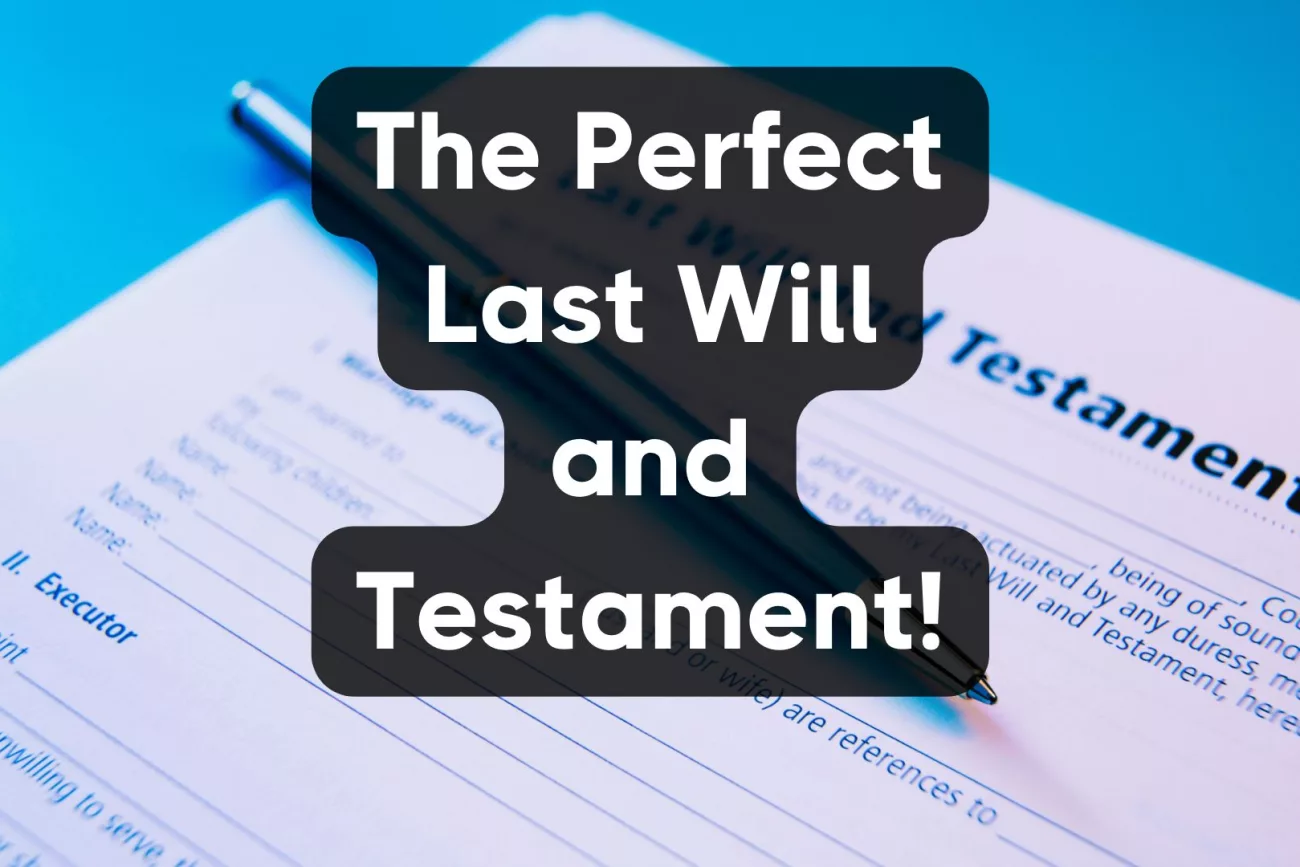
Essential Estate Planning Documents
Essential estate planning documents are critical for securing your legacy, protecting your family’s future, and ensuring that your assets are distributed according to your wishes. A comprehensive estate plan minimizes potential disputes, legal challenges, and taxes while providing for your loved ones. This guide offers an in-depth look at the essential estate planning documents you need, along with real-world examples and state-specific considerations, to help you create the ultimate estate plan.
Essential Estate Planning Documents: Taking Inventory of Your Assets
The first step in creating a comprehensive estate plan is to compile a detailed list of your assets, including:
- Real estate properties
- Bank accounts
- Investment accounts
- Retirement accounts
- Life insurance policies
- Personal belongings (art, jewelry, collectibles)
- Business interests
- Debts owed to you
Include each asset’s current market value and ownership details, ensuring that your records are up-to-date and accurate. Accurate inventory management is crucial in estate planning, as it enables you to have a clear understanding of your estate’s worth and ensures that your assets are properly distributed.
Will: The Cornerstone of Essential Estate Planning
A will is a legal document that outlines your wishes for distributing your assets upon your death. Key elements of a will include:
- Appointment of an executor
- Asset distribution
- Instructions for settling debts and expenses
- Selection of a guardian for minor children (if applicable)
Have your will drafted by a qualified attorney to ensure it complies with state laws and adequately reflects your intentions. For example, in New York, a will must be signed in the presence of two witnesses for it to be considered valid.
Real-World Example:
John, a successful entrepreneur, owns multiple properties, investments, and valuable personal items. He has three children and wishes to ensure that his assets are distributed fairly among them. John consults with an estate planning attorney who helps him draft a will that clearly outlines his wishes, complies with state laws, and minimizes the risk of future disputes among his heirs.
Trusts: Diversifying Essential Estate Planning
Trusts are legal arrangements that provide a way to manage and distribute your assets. Types of trusts include:
- Revocable living trusts
- Irrevocable trusts
- Testamentary trusts
- Special needs trusts
- Charitable trusts
Determine which type of trust best suits your needs and work with an attorney to set it up properly.
Real-World Example:
Susan, a wealthy philanthropist, wants to support her favorite charity while also providing for her children. She establishes a charitable remainder trust, which allows her to receive an income during her lifetime and then pass the remaining assets to the charity upon her death. Her attorney ensures that the trust is structured to maximize tax benefits and comply with federal and state regulations.
📄 Create your estate planning documents in minutes!
🚀 Experience effortless legal document creation with our step-by-step builder, designed to guide you through each stage, guaranteeing a legally binding outcome. Just fill in the blanks, sign, and witness the value-added transformation for your business! 🚀
Beneficiary Designations: A Key Aspect of Essential Estate Planning
Designate beneficiaries for your assets, including:
- Life insurance policies
- Retirement accounts (IRAs, 401(k)s, etc.)
- Payable-on-death (POD) bank accounts
- Transfer-on-death (TOD) investment accounts
Regularly review and update your beneficiary designations to ensure they align with your current wishes and circumstances.
Real-World Example:
David, a father of two, has a 401(k) and a life insurance policy. He initially named his spouse as the primary beneficiary and his children as contingent beneficiaries. After a divorce, David updates his beneficiary designations to name his children as primary beneficiaries and his sibling as the contingent beneficiary, ensuring that his assets will be distributed according to his current wishes.
Healthcare Directives: Essential Estate Planning for Medical Decisions
Prepare healthcare directives to express your medical care preferences in case you become incapacitated, including:
- Living will: Outlines your end-of-life care wishes and life-sustaining treatment preferences.
- Healthcare power of attorney: Appoints a trusted individual to make medical decisions on your behalf.
Real-World Example:
Emma, a 65-year-old retiree, suffers from a chronic illness. To ensure that her medical care preferences are respected, she creates a living will specifying her desire to avoid aggressive, life-prolonging treatments. She also appoints her daughter as her healthcare power of attorney, granting her the authority to make medical decisions on Emma’s behalf if she becomes incapacitated.
Financial Power of Attorney: An Essential Estate Planning Document
Designate a financial power of attorney to manage your financial affairs if you become incapacitated. This individual should be someone you trust, such as a spouse, sibling, or adult child. A financial power of attorney can be either durable (effective immediately) or springing (effective upon incapacity).
Real-World Example:
Michael, a successful business owner, suffers a stroke and becomes incapacitated. Fortunately, he had previously designated his brother, an experienced accountant, as his durable power of attorney. As a result, his brother can step in and manage Michael’s financial affairs, ensuring that his business continues to operate smoothly and his family’s needs are met.
Estate Planning and Taxes: Understanding the Implications
Tax considerations are an important aspect of estate planning. Some key tax implications to consider include:
- Federal estate tax: A tax levied on the transfer of a deceased person’s estate. The federal estate tax exemption for 2021 is $11.7 million per individual. Amounts exceeding this threshold are subject to a 40% tax rate.
- State estate and inheritance taxes: Some states impose additional estate or inheritance taxes on transferred assets. Rates and exemptions vary by state.
- Gift taxes: Gifts made during your lifetime may be subject to federal gift taxes if they exceed the annual exclusion amount, which is $15,000 per recipient in 2021.
- Income taxes on inherited assets: Certain inherited assets, such as retirement accounts and annuities, may be subject to income taxes when the beneficiary withdraws funds.
Consult with a tax professional to understand the specific tax implications of your estate plan and explore strategies to minimize your tax liability.
Real-World Example:
Amanda, a wealthy individual with a large estate, is concerned about the potential tax burden on her heirs. She works with her estate planning attorney and tax advisor to develop a comprehensive estate plan that includes various strategies, such as creating trusts and making lifetime gifts, to minimize estate and gift taxes for her beneficiaries.
Guardianship: Protecting Your Loved Ones with Essential Estate Planning
If you have minor children, it’s crucial to appoint a legal guardian in your will. This person will be responsible for raising your children and managing their assets if you and the other parent are unable to do so. Consider the guardian’s values, financial stability, and willingness to take on the responsibility.
Real-World Example:
Sarah and James, a married couple with two young children, are concerned about who would care for their children if something happened to both of them. They discuss their options and ultimately decide to name Sarah’s sister as the legal guardian in their wills. They also establish a trust to provide financial support for their children’s upbringing and education.
Updating Your Essential Estate Planning Documents
It’s important to review and update your estate plan regularly to ensure it reflects your current wishes and circumstances. Significant life events, such as marriage, divorce, the birth of a child, or the acquisition of new assets, may necessitate changes to your estate plan.
Real-World Example:
Mark, a widower with two adult children, remarries and has a child with his new spouse. Recognizing that his current estate plan no longer reflects his wishes, he works with his attorney to update his will, trust documents, and beneficiary designations to include his new spouse and child.
Working with Professionals: Navigating Essential Estate Planning
Estate planning can be complex, and working with experienced professionals can help ensure that your plan is comprehensive, legally sound, and tax-efficient. Some professionals you may want to consult include:
- Estate planning attorney: Can draft essential estate planning documents and provide legal advice on various aspects of your plan.
- Financial advisor: Can help you manage your assets, plan for retirement, and evaluate the financial implications of your estate plan.
- Tax professional: Can provide guidance on tax strategies and ensure that your estate plan is tax-efficient.
State-Specific Considerations in Essential Estate Planning
Estate planning laws and regulations vary by state, so it’s essential to be aware of the specific rules that apply in your jurisdiction. Some state-specific factors to consider include:
- Community property laws: In some states, such as California and Texas, assets acquired during marriage are considered community property, which may impact how they are distributed upon your death.
- State estate and inheritance taxes: As mentioned earlier, some states impose additional estate or inheritance taxes that may affect your estate plan.
- Probate procedures: Probate is the court-supervised process of administering your estate after your death. Probate procedures and requirements can vary significantly by state, and understanding these differences can help you create an estate plan that simplifies the probate process for your heirs.
Real-World Example:
Janet, a resident of Pennsylvania, has recently retired and is in the process of creating her estate plan. She consults with a local estate planning attorney to ensure her plan is tailored to Pennsylvania’s specific laws and regulations, including state inheritance taxes, probate procedures, and asset distribution rules.
Conclusion
Creating a comprehensive estate plan with essential estate planning documents is crucial for protecting your assets, ensuring your wishes are honored, and providing for your loved ones. By incorporating elements such as wills, trusts, healthcare directives, financial powers of attorney, and guardianship arrangements, you can create a robust and flexible plan that adapts to your changing needs and circumstances. Don’t forget to consult with experienced professionals and stay informed about state-specific considerations to ensure your estate plan is legally sound and tax-efficient.
Frequently Asked Questions (FAQs)
Q. What are the essential estate planning documents?
Q. How often should I update my estate plan?
Q. Are there state-specific factors to consider in estate planning?
Q. What professionals should I consult with when creating an estate plan?
Q. How do trusts factor into estate planning?
Useful links for estate planning documents:
- American Bar Association – Estate Planning FAQs: https://www.americanbar.org/groups/real_property_trust_estate/resources/estate_planning/
- Internal Revenue Service – Estate and Gift Taxes: https://www.irs.gov/businesses/small-businesses-self-employed/estate-and-gift-taxes
- National Association of Estate Planners & Councils – Find an Estate Planning Professional: https://www.naepc.org/search/custom.asp?id=2259
- Nolo – Estate Planning Basics: https://www.nolo.com/legal-encyclopedia/estate-planning-basics
- AARP – 10 Things You Should Know About Writing a Will: https://www.aarp.org/money/investing/info-2017/half-of-adults-do-not-have-wills.html
- U.S. Securities and Exchange Commission – Introduction to Revocable and Irrevocable Trusts: https://www.sec.gov/fast-answers/answersrevocablehtm.html
- FindLaw – State Laws on Estate and Inheritance Taxes: https://tax.findlaw.com/federal-taxes/estate-inheritance-tax/state-estate-tax-chart.html
📄 Effortlessly Create Your Legal Documents Instantly!
🚀 Slash legal fees and save precious time with our expert-crafted DIY templates designed to streamline your business operations. Trust our legal documents to simplify your journey to success! 🚀











